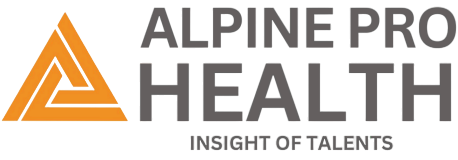Claims processing is a critical component in healthcare RCM. Efficient and accurate claims ensures timely payments, enhances provider-patient relationships, and significantly impacts overall financial health. However, common mistakes in Claims Management can derail the entire cycle, leading to revenue leakage, increased administrative burdens, and strained relationships with payers. Here, we examine some frequent errors healthcare providers should avoid in Revenue Cycle Processing and how to address them effectively.
Common Mistakes in Claims Processing and How to Avoid Them
1. Inaccurate Patient Information
One of the primary errors leading to denied claims is the incorrect entry of patient information. Mistakes such as misspelled names, incorrect insurance ID numbers, or mismatched patient demographics can halt the entire claims process.
Solution:
- Verify patient details thoroughly at each visit.
- Implement electronic health record (EHR) systems with validation features.
- Train administrative staff regularly on the importance of accuracy.
2. Coding Errors
Medical coding errors are highly prevalent and can range from incorrect procedure codes (CPT), diagnosis codes (ICD-10), to improper use of modifiers. Such inaccuracies often result in claim denials or reduced reimbursements.
Solution:
- Employ certified medical coders proficient in ICD-10, CPT, and HCPCS.
- Conduct regular audits and training sessions.
- Utilize coding validation software to spot inconsistencies and inaccuracies before submission.
3. Incomplete Documentation
Claims supported by insufficient or incomplete documentation, consequently, face a higher likelihood of denial. Moreover, proper documentation justifies medical necessity, procedures performed, and compliance with payer requirements.
Solution:
- Ensure clinicians document every patient interaction comprehensively.
- Provide clear guidelines on documentation standards.
- Regularly review and update documentation policies according to regulatory changes.
4. Failure to Check Eligibility and Benefits
Neglecting the verification of patient insurance eligibility and benefits prior to claim submission can result in unnecessary denials.
Solution:
- Implement a robust eligibility verification process at patient check-in.
- Leverage automated eligibility verification systems.
- Educate the front-office staff on routine checks and confirmations.
5. Timely Filing Errors
To begin with, missing deadlines for filing claims is a common yet avoidable mistake. Since payers have strict timelines, late claims are often automatically denied.
Solution:
- Create a clear tracking and monitoring system for claim submissions.
- Utilize automated reminders and workflow management tools.
- Train staff to prioritize time-sensitive claims.
6. Duplicate Claims Submission
Additionally, submitting duplicate claims increases administrative costs and frustrates payers, thereby causing delays in processing legitimate claims.
Solution:
- Employ claims tracking software to identify duplicates.
- Establish clear protocols to verify claim submission status before resubmission.
- Regularly audit claim submission processes.
7. Ignoring Denied Claims
Failing to address denied claims promptly can significantly reduce the revenue cycle’s effectiveness, as unresolved denials accumulate rapidly.
Solution:
- Create a streamlined denial management workflow.
- Implement clear guidelines for timely follow-up on denied claims.
- Assign dedicated personnel to manage Claim Denials efficiently.
8. Lack of Regular Staff Training
Given that the healthcare landscape continually evolves, regular staff training becomes increasingly vital to keep pace with updates in payer requirements, compliance regulations, and technological tools.
Solution:
- Schedule periodic training sessions and refresher courses.
- Utilize ongoing education modules provided by professional healthcare associations.
- Foster a culture of continuous learning within your organization.
9. Improper Use of Technology
Moreover, not utilizing or incorrectly leveraging technology solutions can amplify errors in claims processing.
Solution:
- Therefore, invest in reliable claims management software with integrated analytics.
- Train staff thoroughly on new technological tools.
- To stay competitive, continuously evaluate and upgrade technology as needed to align with best practices.
10. Poor Communication
In addition, miscommunication within departments or between the healthcare facility and payers can result in overlooked details and unnecessary delays.
Solution:
- Establish clear communication channels and regular updates across departments.
- Hold regular meetings to discuss and rectify frequent errors or bottlenecks.
- Utilize collaborative platforms for real-time communication and updates.
How Alpine Pro Health Can Help?
At Alpine Pro Health, we provide accurate, timely, and compliant claims processing solutions tailored for U.S. healthcare providers. Our team of AAPC- and AHIMA-certified coders, along with real-time chart auditing tools and AI-driven platforms, helps minimize denials, accelerate reimbursements, and ensure regulatory compliance.
We operate as a seamless extension of your practice scalable, reliable, and results-driven.
- Precise coding for ICD-10, CPT, and HCPCS
- Claim scrubbing for clean and timely submissions
- Denial management and accounts receivable recovery
- Compliance audits and clinical documentation support
Conclusion
Avoiding these common mistakes in claims processing is essential for improving financial outcomes, enhancing administrative efficiency, and maintaining strong payer-provider relationships. To begin with, proactively addressing these pitfalls through comprehensive staff training, employing advanced technologies, and maintaining meticulous documentation can significantly optimize the claims process. Furthermore, these strategies help reduce errors that often lead to costly delays or denials. As a result, healthcare providers can build a more efficient workflow. Ultimately, a robust and error-minimized reimbursement processing system ensures a stable, predictable revenue flow and supports the long-term success and growth of healthcare organizations.


